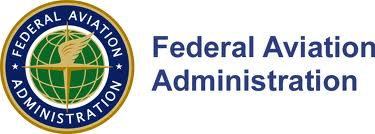 The US Department of Transportation’s (USDOT) Federal Aviation Administration (FAA) recently took two steps to increase safety aboard commercial aircraft, one impacting the flight crew and the other affecting the general flying public.
The US Department of Transportation’s (USDOT) Federal Aviation Administration (FAA) recently took two steps to increase safety aboard commercial aircraft, one impacting the flight crew and the other affecting the general flying public.
In the first action, on Thursday, January 30th, 2014, the FAA issued a safety advisory forbidding the carriage of what are known as “canned recreational oxygen products” aboard commercial aircraft. Apparently, such small retail-focused containers of oxygen (a hazardous material controlled by regulation) have recently been sold in shops in airport concourses, primarily marketed as a means of helping disembarking passengers recover from the effects of flying. However, FAA’s concern was that embarking passengers would inevitably carry them aboard aircraft, with their presence in retail shops placed within security zones (i.e. gate areas) seen by many passengers as signifying that they must then be legal to carry aboard their flight. Instead, such containers, while legal for use in the gate area, are not to be carried aboard and if acquired should be discarded prior to embarking. FAA regulations in the 14 CFR 121.574 and 135.91 continue to stipulate the rules for the legal use of medicinal oxygen used by passengers during flight, and no change has been made to those regulations in this area. Here is a link to the advisory:
FAA Advisory on Canned Oxygen (PDF)
On the flight crew side, on Wednesday, February 12th, FAA published a final rule in the Federal Register banning the use of personal wireless communications devices and/or laptop computers by the flight crew while the aircraft is being operated—note that this language applies to operations both in flight and while on the ground. However, the use of such devices during an emergency, for safety reasons, for uses directly related to operation of the aircraft, and for “employment related uses according to the carrier’s established procedures and approved by the FAA” are exempted from the prohibition. In very general terms, this rule conforms FAA regulations to those already extant in the trucking and railroad industries, where operators have been banned for some time from the use of such devices while operating their equipment. Here is a link to the rule:
http://www.gpo.gov/fdsys/pkg/FR-2014-02-12/pdf/2014-02991.pdf
Labelmaster is a full service provider of goods and services for the Hazardous Materials and Dangerous Goods professional, shippers, transport operators, and EH&S providers. See our full line of solutions at www.labelmaster.com.


